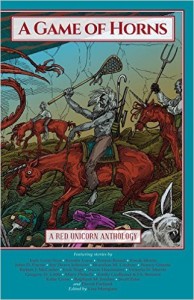Have you ever noticed how we tend to speak of our time as if it were a commodity? Just look at the verbs we use! We spend time, we save time, and we waste time. At work, we earn time off and are paid in terms of tender per hour or per year. Ultimately, whenever you go work for another you are leasing them your time and attention, devoting your talents to their projects rather than your own. As the cliché goes, time is money.
So, if we count and budget money, why shouldn’t we do the same for our time? As an example, let’s consider my time in round numbers. There are 168 hours in a week. I find my job to be challenging and fulfilling, and so I spend, on average, 45 of those hours working. It takes me another 4 hours a week to commute back and forth, and I usually aim for about 7 hours of sleep a night. All that accounts for 98 hours per week and leaves me with 70 hours to do with as I please.
Sure, once you start considering the minutiae of everyday life, that time goes fast. However, just because I feel that I “need” to do a thing doesn’t change the fact that I’m expressing value by doing it. I clean my cat’s litter boxes because I value their companionship as much as I appreciate having a house that doesn’t smell like cat poop. I value my personal appearance and hygiene, as well as the health benefits that come from regular exercise and eating well. I want to be free from debt, live in clean spaces, and maintain my relationships with my friends and family. It seems like a lot to do in 70 hours, and it is.
However, in and amongst all those details I cannot allow myself to forget that I also value writing. Fiction is a demanding mistress. Like many other authors, I’ve spent years practicing my craft and actively working to maintain and improve my abilities. I’ve devoted countless hours to planning, writing, and editing stories. I’ve invested all of this time because I love the act of creation. I find joy in building worlds and characters, satisfaction in a well-crafted phrase, and a sense of profound peace in the ability to control a world absolutely. Writing fulfills a deep emotional need and so it is worthy of my time.
The major difference between a professional and a hobbyist writer is their commitment. The hobbyist writes when it is convenient. When they find time. The professional chooses to carve time out of a busy life to write. The hobbyist makes excuses for why they didn’t have the time, and the professional acknowledges the reasons and makes it work anyways. This is why I leave a notecard that reads “70 Hours” taped to my bathroom mirror. My time isn’t infinite, but it is mine to do with as I please.
There are many things in this world that seem really important, genuinely urgent, and make a great case for why I need to spend my time working on them rather than having my butt in the chair and my fingers on the keyboard. And while some of them do need to be taken care of now, most can be managed to still allow room for writing time. The past is done and that time has already been spent, but I can choose my actions going forward.
Knowing and saying all this is one thing, but living the commitment to be a professional is often much harder. I’m as guilty as anyone else when it comes to making excuses. In fact, one of my friends recently called me out on this, something that I love her dearly for doing. We all need writer friends to help keep each other honest.
I can’t tell you how to strike a work-life-writing balance that’ll work for you. As far as I’ve been able to find, there’s no magic formula. However, if you got it figured out be sure to share your solution. The best I can do for you is talk about what has worked for me in the past, and more importantly the traps that have bogged me down. But don’t just take my word on it.
This month on the Fictorians, you’ll hear from a truly inspiring roster of writers who all need to balance the many demands of life against their writing time. Though they each go about maintaining their work-life-writing balance in different ways, I’m sure that you’ll find some stories and advice that resonates with your own situation. Whether you feel that you just need to make a few tweaks or perform a complete overhaul of your work-life-writing balance, know that you are not alone. Balancing the many demands of life is something that we all struggle with. Be welcome and happy writing!


